On January 12th, 2020, 2020 International Young Leadership Finance Summit, hosted by Shanghai Advanced Institute of Finance (SAIF), Shanghai Jiao Tong University, was officially launched. Centered at the theme of "Innovation and Finance in the Sci-Tech Era", the Summit invited SAIF faculty, industry experts and 120 participants from around the world to explore how technology startups can be empowered through innovation and finance.
This year’s Summit is honored to greet Ms. Lydia (Bingnan) Liu, Managing Director of Citigroup Global Markets Asia Limited, as the keynote speaker. Focusing on the theme of this Summit, Ms. Liu delivered a keynote speech entitled "FinTech Disruption in Asia".
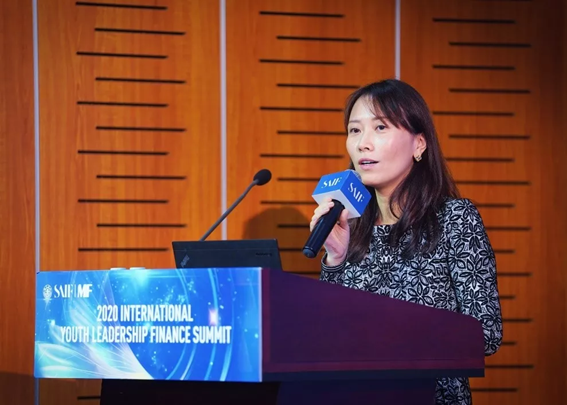
Ms. Lydia Liu first introduced her professional experience and the global trends of FinTech. After that, she started talking about the Asian market's position in fintech competition and analyzed the technological innovations of different financial companies in the Chinese market in detail. She pointed out that China has a great leading edge in the direction of Internet finance. Whether it is the giant population or the convenience of mobile communications, it provides a rich hotbed for the combination of the Internet and finance. Finally, Ms. Liu encouraged the young students present to keep learning at all times and make innovation the core competency in their career paths.
Asia is a land of opportunities for FinTech
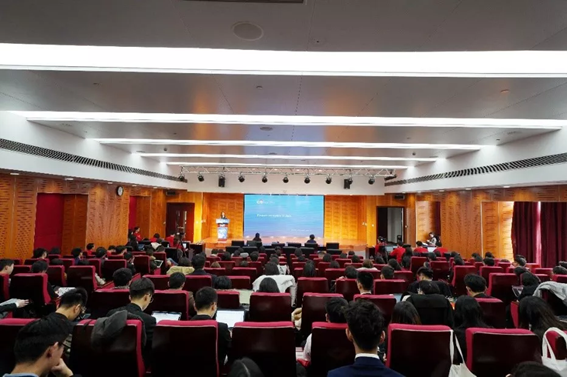
At the beginning, Ms. Liu shared her experience with the participants. Throughout her career journey, she has been based in Mainland China, the United States and Hong Kong and spanned multiple specialties, including accounting, consulting and investment banking. Her rich experience has shaped her diverse perspective and strong critical thinking. Having worked in the industry for more than a decade and witnessed tremendous changes and developments in the sector, she chose to return to Asia, a younger and more promising market. Today, FinTech is infiltrating all aspects of traditional finance and will have a disruptive impact on the world, especially in emerging Asia.
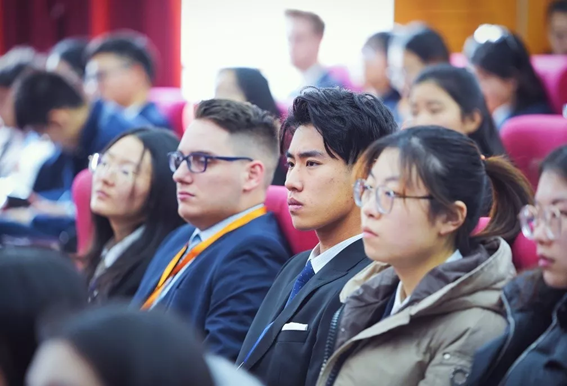
According to Ms. Liu, Asia a "land of opportunities" for FinTech. The favorable macroeconomy, the exceptional room of growth and the large population have jointly determined the unique market potential of Asian economies. Convenient mobile communication facilities and efficient infrastructure capabilities have further promoted the economy of scale and the agglomeration effect, which have spawned successful FinTech products such as WeChat Pay and Ant Financial. We will see more possibilities in the future.
Subsequently, Ms. Liu further explored today’s landscape of the FinTech market in Asia. At present, the market in Asia is still in its infancy, and the products and services are mainly concentrated in mobile payment, e-commerce, social media, Internet and P2P segments. In terms of business model, FinTech companies mainly serve individuals and SMEs that are not covered by traditional banking and provide competitive services to solve the pain points of traditional financial institutions, such as limited coverage, high costs and information asymmetry. Fintech companies use innovative technologies such as big data and artificial intelligence to reduce labor costs, accurately target at customer needs, provide more personalized services and effectively control risks. Concerning industry life cycle, FinTech companies are highly competitive. The products are currently concentrated in C2C and lending operations, with limited differentiation. In the future, they may evolve into C2B and non-lending businesses. Taking Ant Financial as an example, it stemmed from Alipay, has launched a series of products, including Yu'E Bao and Sesame Credit, and has successfully achieved gradual penetration into mobile payment, asset management, credit rating and other fields. It plans to provide more complex financial services in the future, ranging from insurance to personalized asset management.
Balance between tradition, innovation and regulation
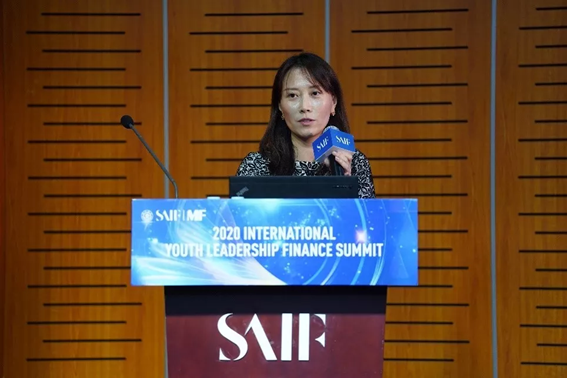
As a veteran investment banker, Ms. Liu admitted that FinTech will indeed impact the traditional financial sector to a certain extent. She believes that although investment banking has not yet witnessed fundamental changes, leading banks have begun to accept and try new technologies and actively expand traditional business models. Although established banks have strong advantages of capital and customer base, FinTech is a new arena full of possibilities. If traditional financial institutions can't break the norm, become creative and create new demands in addition to meeting existing needs, they might be easily overtaken by latecomers.
Later, Ms. Liu made further discussions on the regulatory issues that have attracted extensive attention. Fintech brings new value, while new risks cannot be ignored. These risks include credit, fraud, information security, financial system and social instability risks. For government, it is imperative to reinforce the development of the FinTech planning and regulatory systems, actively guide the proper use of technologies in the financial sector and constantly improve the ability to prevent financial risks. For enterprises and investors, regulatory immaturity increases the uncertainty in the industry's future. "Strategic regulation " is the key to collaboration between the two groups of stakeholders. She believes that the two groups will work together and find a way to achieve the balance between regulation and innovation.
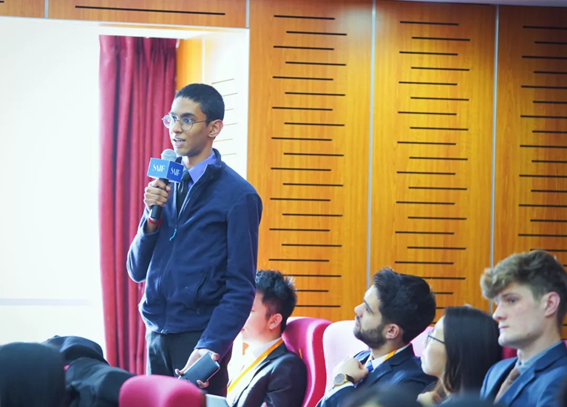
During the Q&A session, outstanding young students from universities around the world raised their questions to the guest speaker. A student from the University of Cambridge asked Ms. Liu what she thinks of the violation of personal privacy in FinTech applications. A student from Fudan University raised the issue of personal career development and how students with a non-financial background should find their unique advantages in the financial market.
Finally, inspired by the questions from the students present, Ms. Liu extended her speech to compare the similarities and differences between the current FinTech industry structures in the US and Asia. She believes that the US financial sector is more mature and has a smaller population of underserved or unserved people. Therefore, the positioning of FinTech companies is mainly to attack and replace the business of the traditional financial sector. In contrast, the target segments of FinTech companies and traditional financial institutions in Asia are not highly overlapped. Therefore, the degree of disruption to the traditional financial sector is not as visible as that in the United States. In addition, the financial market will become further segmented in the future. Traditional finance and FinTech will cooperate in competition to achieve mutual benefit and win-win results, which will work together to drive the growth of the real economy.
In conclusion, Ms. Liu advised the future financial professionals present to keep up with the changes and development of the times, always stick to the learner mindset, constantly update their expertise and skills and take innovation as their core competency.






